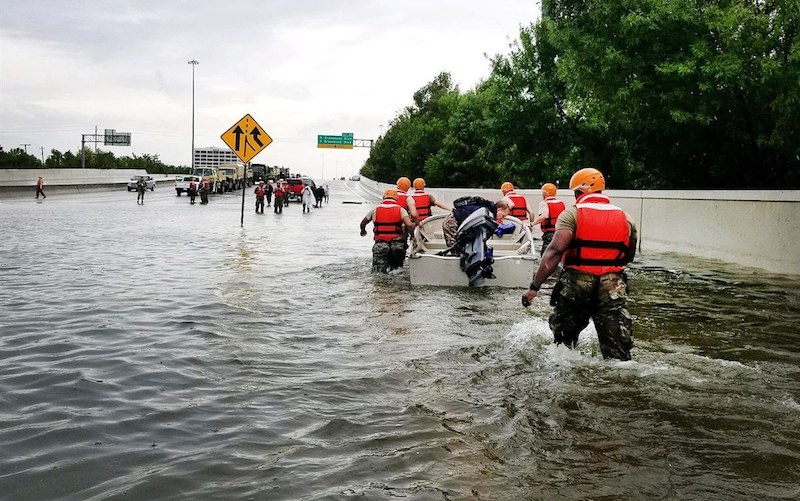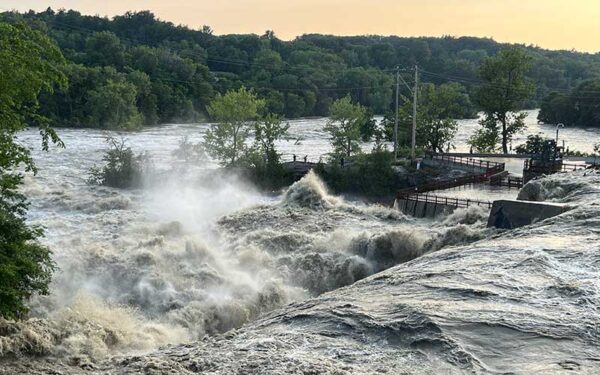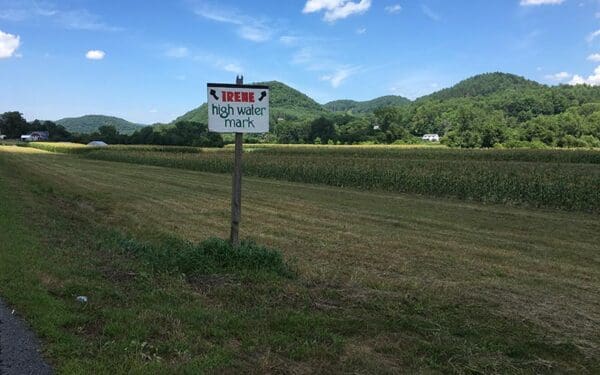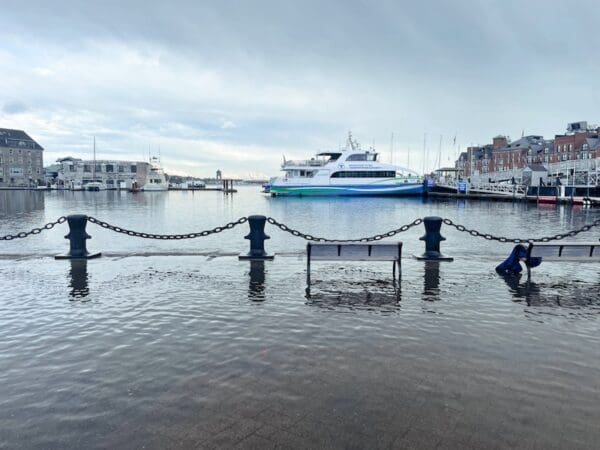
Houston is only just beginning its long recovery from the impacts of Hurricane Harvey. How would Boston fare in the face of such a storm? Photo: Texas Air National Guard
As the Houston area begins its long recovery from the devastating floods triggered by Hurricane Harvey – and with Hurricane Irma now barreling toward Florida’s coast – we wanted to know how Boston would fare in the face of such high waters and heavy rains. So we turned to CLF’s Director of Environmental Planning, Deanna Moran, to find out.
Q: Is Boston at risk from a storm like Harvey?
A: Because of Boston’s coastal location and terrain, we’re extremely vulnerable to flooding. While a storm of Harvey’s magnitude hitting Boston is unlikely, even a fraction of what they experienced in Houston could have a disastrous impact on Boston. What’s more, the intensity of storm events like Harvey is likely to increase due to climate change.
Look at Hurricane Sandy, for example. If that storm had hit Boston just a couple of hours earlier, at high tide, we would’ve seen most of East Boston, a lot of South Boston, including the Seaport District, and even some of the downtown area inundated with floodwater.
I want to emphasize, though, that Boston’s vulnerability is not just an extreme storm problem. It’s an everyday chronic-flooding problem. If you look at all of the research the City of Boston has done and all of the data they have collected, they show that, right now, our stormwater system is not prepared to handle even frequent precipitation events, let alone something to the scale of hurricanes like Harvey or Sandy.
Q: What about the human impacts? We’re seeing a lot of news now about pollution and contaminants from chemical storage and fossil fuel facilities. Should we be worried about such impacts here?
It’s critical that we not just think about the impacts to development and structures, but also the impact flood waters have on neighborhoods and people. If a hurricane were to hit Boston, we are very much at risk of seeing similar levels of contamination and human health hazards as those that Texas is experiencing right now. Just in Everett, we have an ExxonMobil storage terminal on the banks of the Mystic River; it’s not prepared for floods today, let alone the future impacts of climate change. The pollutants from that ExxonMobil facility would contaminate water for all of the surrounding neighborhoods and have a huge impact on the entire regional economy.
Q: Is the City of Boston doing enough to ensure we don’t experience the same devastating impacts as Houston?
A: The City deserves tremendous credit for the research and planning it has done to identify the solutions needed to be prepared for storms of such intensity. Where they’ve fallen short is in implementing those plans, and codifying needed changes in local or statewide regulations. Instead, we’re seeing that a lot of the recommended solutions are voluntary for developers.
At the same time, while it’s the City’s job to create the framework that makes some of the necessary changes mandatory, it’s also on the individual developers, architects, engineers, and others to make sure that the projects they’re proposing and constructing today are climate resilient.
Q: Tell us more about what it means to make development climate resilient.
A: No amount of zoning or planning will completely prevent the devastating effects of something like Hurricane Harvey, but it can make recovering and dealing with them easier. Resiliency is not only preparing and adapting our environment for the climate impacts that we know are coming, but also making sure that we can manage and absorb those impacts so that we can bounce back from them more readily. In Boston, that means learning to live with water.
People have spent decades planning cities around the concept of keeping water out. We’ve built sea walls and all types of structures to prevent water from coming in, but we’ve reached the point where water is going to come in no matter what. Now we need to learn how to work with it and build in harmony with it in order to make sure that storms like Hurricane Harvey are not disastrous. We’re never going to be able to prevent such impacts completely, but we can improve our ability to come back from these storms – we can work with the water, and we can reduce the human cost as much as possible.
Q: We’ve talked a lot about Boston, but what about New England as a whole: What should we be doing regionally to make sure we can deal with the most extreme impacts of climate change?
A: Coastal communities throughout New England are vulnerable as are our inland communities, as we saw with riverine flooding during Tropical Storm Irene six years ago. Cities and local governments have a crucial role to play in preparing for these types of weather events, but there’s also a huge opportunity regionally for us to come together and think about solutions. Severe storms and flooding don’t respect state borders.



